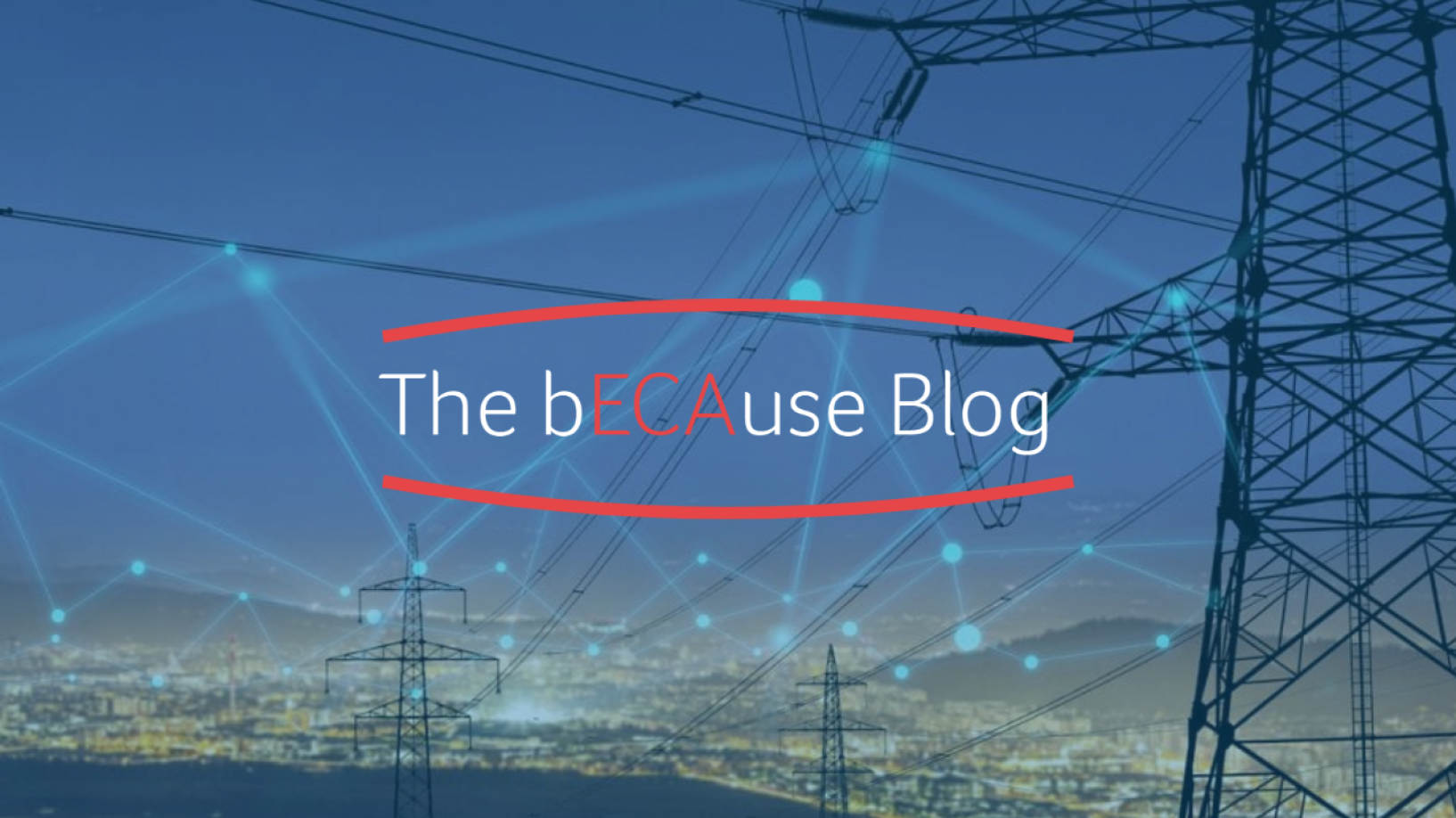In the bECAuse series, we speak to various thought leaders at Energy Consumers Australia about the projects, goals and strategic priorities they are working on, why they are working in this area and how combined, they contribute to an Australian energy system that is responsive to consumer needs.
As our Energy Consumer Sentiment Surveys tell us, there is a significant and ongoing ‘trust deficit’ in the energy industry. In 2018 we, together with other consumer organisations, played a role in the establishment of an Energy Charter of energy businesses across the supply chain which recognised that better customer outcomes required a whole of sector response. Since being formally launched in January 2019, the signatories to the Energy Charter have annually reported on how they are delivering against the Energy Charter Principles. Alexandra Bishop, our Policy and Stakeholder Engagement Advisor, takes us through our work in supporting the engagement of the End Users Consultative Group with the Energy Charter, and their input into the work of the Independent Accountability Panel in its report on 2020 outcomes for consumers.
One of the ways in which the Energy Charter is able to hear from, and act on the needs of energy consumers, is through their engagement with the End User Consultative Group (EUCG) whose members include a range of key consumer and business advocates. The EUCG is chaired by our CEO Lynne Gallagher, and we work together with the EUCG to participate in the Independent Accountability Panel’s (IAP) annual accountability process to constructively evaluate the individual and collective performance of the Energy Charter signatories over time against the principles in the Charter.
Throughout the year many consumer organisations, including those on the EUCG, engage directly and through the National Consumer Roundtable on Energy with the Energy Charter on specific initiatives to improve outcomes for consumers. The Energy Charter disclosure and reporting process has now wrapped on its second year, with the IAP releasing its report on 8 December 2020, with their findings summarised in their media release.
Heading in to the 2019-20 reporting by signatories, the EUCG shared their expectations that signatories would go beyond compliance and demonstrate transformative practice, in better understanding and responding to energy consumers priorities. However, no-one anticipated a global pandemic which fundamentally changed the very fabric of society. What we saw over the past year was a real-time stress test of the Energy Charter’s principles. Never had the needs of the consumer been so important as the economic impact of COVID-19 changed the circumstances of a vast number of Australians, some of whom had never experienced financial difficulty before.
While it was looking like the pandemic was all but eliminated here, the events of the last week in Sydney, with authorities introducing new lockdowns and travel restrictions, remind us that it will be some time before life returns to normal.We do have some insights about how people are managing their finances and the impacts of COVID generally through special research we commissioned earlier this year to understand the experience of households and small businesses in relation to their energy bills, as a result of the bushfires and COVID-19. In June 2020 we released Shock to the System: energy consumers experience of the Covid-19 crisis which found:
- around half of people (49%) say they have more concern about their ability to pay household bills since the COVID-19 pandemic started with the number rising to 71% for those who have lost work during the crisis;
- electricity bills were the top cost of living issue for consumers with 73% rating electricity one of their top-3 concerns, ahead of groceries (56%) and housing costs (50%);
- 67% of energy decision-makers expect an increase in their electricity bill this year; and
- 20% of energy decision-makers say they have already requested financial assistance to pay their electricity bill. Of these, half (10%) received help which was useful, and half (10%) did not receive help that was useful.
The Australian Bureau of Statistics (ABS) tracked the impacts of COVID-19 in real time and found in the September 2020 Household Impacts Survey that 21% of Australians living in family households with children reported that their household finances had worsened over the previous four weeks. More recently, the Australian Energy Regulator (AER) released statistics revealing that consumer debt levels are rising, with the average 90-day debt increasing from $960 in March to over $1,100 by the end of September 2020. The issue of accumulated debt was identified in the early days of the pandemic which led the energy network businesses to react swiftly and develop a network relief package to help individuals and small businesses experiencing mounting debt levels. Following on from this step, the Australian Energy Market Commission (AEMC) imposed a rule change to defer network charges.
Whilst a positive step to help mitigate the rising debt levels, it did not go far enough. Debt levels continue to rise, and the big question is how will people pay down their debts over the medium term? The impact on households and small business is what has been described by the IAP as an impending ‘debt tsunami’. We believe many members of the community will suffer the weight of this debt even more when the Government assistance measures are reduced, and then removed.
This worrying scenario begs the question, what are energy businesses, including those that are signatories to the Energy Charter, doing to put in place actions now to help the community in anticipation for this debt tsunami? The circumstances that leave many more Australians vulnerable to being unable to pay their energy bills, or other costs of living are varied, whether households or small businesses. We believe that the Energy Charter’s principle of knowing their customer and community has never been so important, as companies manage the broad spectrum of consumers identified as being in vulnerable circumstances. Companies must move fast to get people the proactive help they need to ensure that their challenges don’t become larger and less manageable.
The EUCG has called on signatories to step up and develop a coordinated approach to chart a course for action. Several signatories have implemented discrete measures which is a positive first step, but the bigger picture requires all signatories, and energy companies outside the Energy Charter, to adopt a consistent and coordinated response.
Recently, two of the Energy Charter’s largest Signatories, Origin Energy and AGL, made the disappointing decision to exit the Energy Charter. We still look to the Charter, and to Origin and AGL, to deliver on the Energy Charter’s goals, particularly to put the customer at the centre of their business, which is imperative if the whole energy sector is to gain the trust and confidence of the community.
We know from our Energy Consumer Sentiment Survey that the proportion of consumers that feel the market is working in their interests is rising slowly, 38% of household consumers in December 2020, up from 21% in December 2017, but the reality is that figure is still very low. In restoring trust and confidence, actions speak louder than words. We still believe in the principles of the Energy Charter that we helped to develop and nurture from the beginning. We feel that by industry working together and demonstrating a strong, cohesive commitment to helping consumers, particularly now when they need it the most, signatories have an important opportunity to demonstrate what the Energy Charter set out to achieve, which is ultimately better outcomes for consumers.

